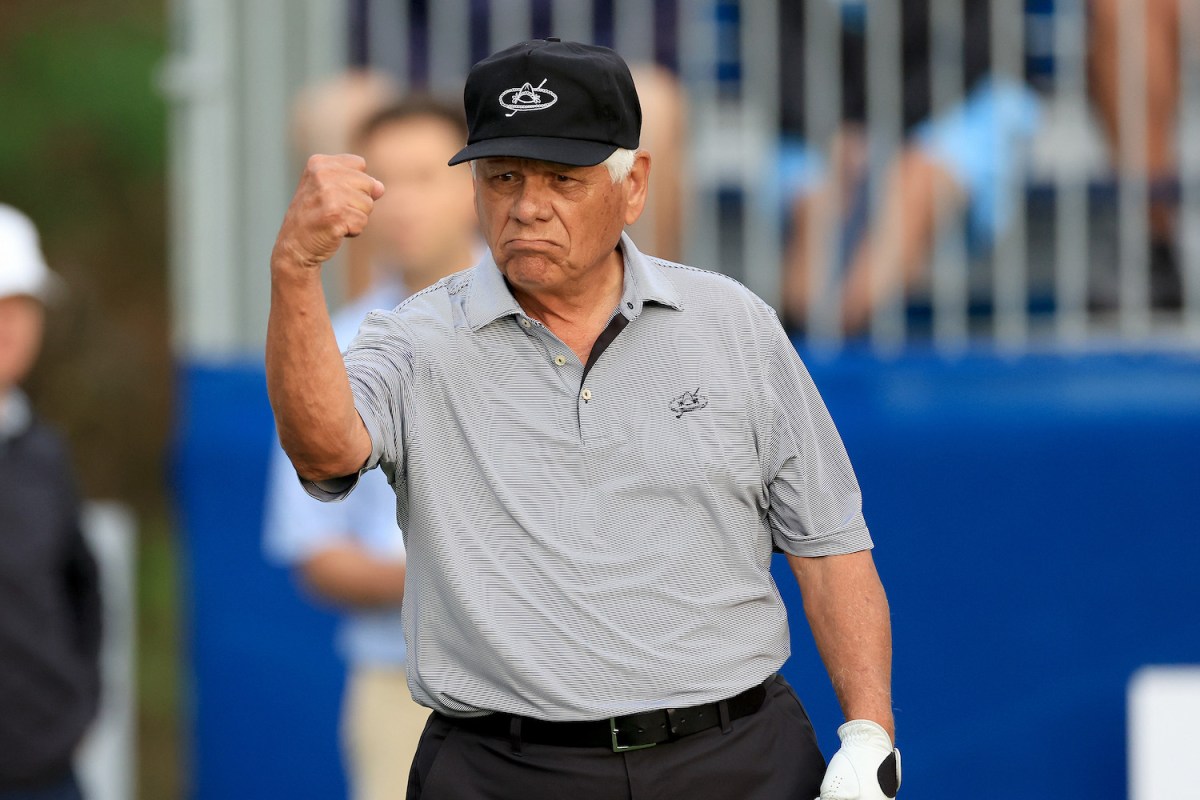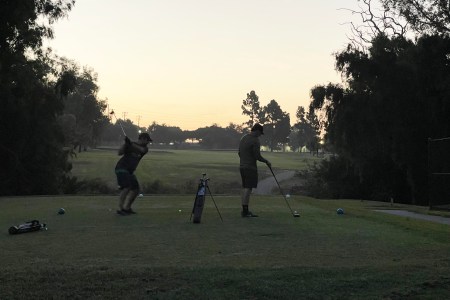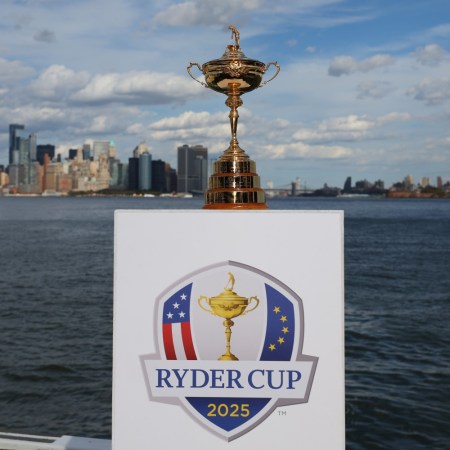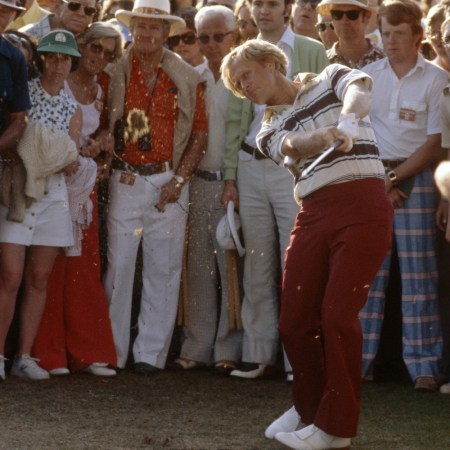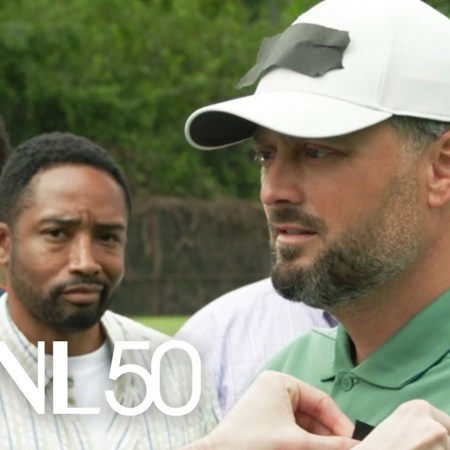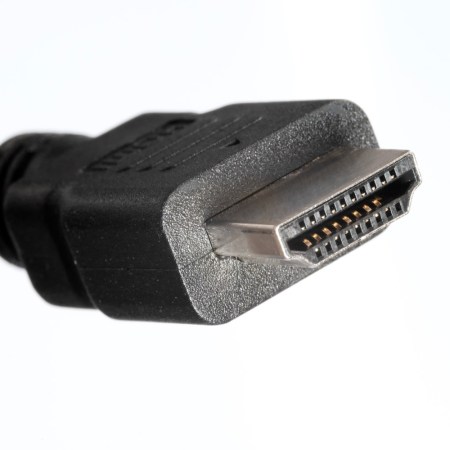Ever get stuck on the links behind schmucks who take way too long between shots and you just want to scream something like, “This ain’t the PGA! Speed it up!” Apparently the actual PGA has slow-going schmucks of its own, according to longtime tour pro Lee Trevino.
“They need to penalize some of these slow players,” Trevino, 83, recently said on the SiriusXM PGA Tour Radio show A New Breed of Golf.
Trevino, who’s won six major championships in his golf career, told host Michael Breed that even Jack Nicklaus was once penalized for slow play in a tournament: the Portland Open of 1962, Nicklaus’s rookie year as a PGA Tour pro.
“Jack went ahead and won by six,” Trevino said. “It didn’t make a difference. But at least they had the guts to penalize a superstar. It doesn’t do any good to [penalize] some guy who can’t pay his rent.”
Welcome to Speed Golf, A Sport for Maniacs Who Also Golf
I spent a round with the fellows who recently founded the LA chapter. They finished in 77 minutes.The subject of slow play has been a talking point around the sport of late because of Patrick Cantlay’s alleged deliberate pace during the recent Masters, per Golf.com. The first question asked of runner-up Brooks Koepka in the post-tournament press conference was about how long the final round took to complete. “Yeah, the group in front of us was brutally slow,” he said, referring to Cantlay and Viktor Hovland.
For his part, Hovland appeared to move things along by taking at least one shot from off the 13th hole green before partner Cantlay joined him in the area.
“There is plenty of context not included in the clip above, like the fact that Hovland was already waiting near his ball as Cantlay played his own, and how it probably takes at least a minute to reach the green from where Cantlay was playing,” wrote Golf.com in another article about the matter that included the same tweet. “But ultimately the penultimate pairing finished their round in about four hours and 45 minutes. That is not blazing speed.”
However, Cantlay himself also complained about slow play in front of him at the Masters.
“We finished the first hole, and the group in front of us was on the second tee when we walked up to the second tee, and we waited all day on pretty much every shot,” Cantlay said. “We waited in 15 fairway, we waited in 18 fairway. I imagine it was slow for everyone.”
He later suggested that the heavy wind gusts, hole locations and green speeds at Augusta presented challenges for all the golfers and probably led to the delays as pros took longer shot assessment stretches. Cantlay also said that as a member of the Player Advisory Council he’s seen data about PGA Tour round times. “Rounds have taken about the same length of time for the last 10 or 20 years that they currently take,” he said.
Trevino and others seem to disagree with that assessment. Trevino even intimated on Breen’s show that he could curse on the radio out of such frustration, but held the impulse back.
Golf.com noted today that a high-profile player has not been penalized for slow play in a televised event in quite some time. But the publication covered a 2021 incident in which the score of John Catlin — an American currently ranked 350 in the world — took a one-stroke hit due to slow play during the PGA Championship. Catlin broke a rule that states “when it is your turn to play, it is recommended that you make the stroke in no more than 40 seconds after you are able to play without interference or distraction. You should usually be able to play more quickly than that and are encouraged to do so.” He was issued a warning after he took 74 seconds between a shot and was then hit with the stroke penalty after taking 63 seconds between a later pair, which was also aligned with a policy the PGA implemented at the beginning of the 2021 season. The Tour tracked slow players, put them on an “observation list” and told them to take no more than 60 seconds between shots…or else.
Of course, ages ago the NBA instituted a shot clock to keep teams with leads from running games out with infinite passes. More recently, and even more relatedly, MLB implemented a pitch clock with hopes of speeding games up and making the sport more appealing to fans in today’s era of shrinking attention spans. Like MLB, golf has an age-demographics problem, too. With the average fan age creeping up in those respective sports, there are concerns about their long-term sustainability. If there are fewer fans in, say, 30 years — because the younger generations haven’t taken the spots of the older fans watching now — the sports will probably struggle financially. To avoid that, in the meantime they must attract younger fans, who tend to have the shortest attention spans.
In golf, a player can’t defeat an opponent through slow play like they could in the NBA without a shot clock. But if these complaints of slow play in golf keep up, maybe we’ll see a measure taken on the PGA Tour similar to that of MLB’s pitch clock, which has successfully sped up games to the quickest pace since the 1980s.
Even with the spirit of such a rule more closely connected to MLB’s pitch clock, golf legislators would more sensibly call their version a “shot clock” like they do in the NBA. Lee Trevino — and any other annoyed golf fans — can dream.
Whether you’re looking to get into shape, or just get out of a funk, The Charge has got you covered. Sign up for our new wellness newsletter today.
